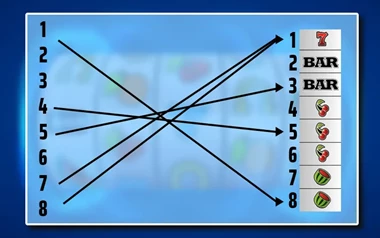As reviewers, we are often told to avoid associating the word “thrill” with gambling. It creates the wrong image and can influence people the wrong way. But there is a reason why we are told to actively avoid it—because that is one of the key qualities of gambling. Gambling is thrilling, just like how speeding on a highway is. There is risk and we know it, but we do it for the thrill anyway.
So today, let us take some time to reflect on how this works. Why do people gamble? What is the psychology behind gambling? Is it always wrong?
Thrill (Why Are We Drawn to Risk?)
Human nature. There, you have it.
The brain responds in a very interesting way to risk and reward. It has been evolutionary beneficial for humans to weigh these two things. We are essentially programmed to look at higher risk as “higher reward too.” This is how we were able to speak our minds against society’s evils, stir up revolutions, look beyond the earth, climb Mt. Everest, and even land on the moon.
Dopamine creates excitement and anticipation when we are mulling over a potentially risky matter. There is even more dopamine when we know for a fact that the risk hides an unconventionally bigger reward behind it (recognition as the first country to land on the moon or as a person to have “conquered” the tallest mountain in the world).
That is why people are drawn to unpredictable outcomes and the emotional rollercoaster of gambling. Your next spin could land you a jackpot, the next lottery ticket could make you a millionaire, the next hand you get might help you recover all your losses, and so on. All of these feelings are central to how we measure risk and reward—and instrumental to gambling.
The Psychology of Reward and Reinforcement
A direct reward is good. But you know what is even better? A variable reward. When you do not know how much you can win, but you have an idea of the range (where the upper limit is very high), you are more likely to continue playing.
So, why do people gamble on slot games so much? It is the variable rewards that make them so interesting, not the graphics, theme, or payout table.
Add to that intermittent reinforcement and you have the perfect recipe. Intermittent reinforcement is when something rewards you regularly, ever so slightly, urging you to keep playing. Slot games do this very well but table games can also be considered excellent examples here.
The more you win, or worse yet, even the more you lose, the higher your perceived value of the potential reward. This creates frequent gambling behaviour.
Illusion of Control
We are so dumb that we have always believed that we can beat the odds. Achilles led the Greeks on a 10-year siege against the city of Troy, going against all notions of hubris. This is a classic example of how we have always believed we can beat the odds. And that is the exact same reason why we listen to a motivational speaker today on TikTok or YouTube—we are inspired by the top 1%, the exception, the one-off case of rags-to-riches, and put our mind to replicating that success.
Similarly, there is a cognitive bias in gambling called the gambler’s fallacy. For a species with the steepest positive growth curve on the planet, we sure are confoundingly dumb, often driven by superstitions, personal rituals, and unsound self-beliefs. Even if the math says that the house always wins, we are still ready to sink countless hours and pour money into gambling just for that illusion of control.
This illusion encourages continued play despite odds—whether you are spinning a reel or betting on your favourite EPL team.
Another good example is that we know every coin flip has a 50/50 chance of landing either heads or tails. But if I tell you that you will be more willing to bet on heads if it has been tails for the last couple of flips, would you agree? That is how the human mind thinks. The previous outcomes do not influence or determine the next outcome. That is simply not how probability or randomness works. But we are intuitive thinkers and it is a fallacy that gambling can easily exploit.
Social and Emotional Triggers
Peer influence, cultural norms, advertising, and the envy of others’ successes are all social triggers that make us gamble (or gamble more often). Emotional triggers like coping with stress, loneliness, or boredom can also lead to gambling, especially if the barrier to entry is very low. Then there is an “escape” in gambling—providing a temporary distraction from life’s problems.
All of these ingredients further exacerbate the problem and make you gamble bigger and/or more frequently.
Brands have cracked the code to the human mind. Why advertising works so well has little to do with how good the products today are. It is almost entirely dependent on human psychology. If gambling operators are given a free pass, we would see a lot more people being introduced to casinos, terribly ill-equipped to handle the repercussions of problem gambling.
Countries take generations to realise this stuff. Though we can be thankful that substantial progress has been made in markets where gambling has had its worst spell over, like the UK itself or Australia, a lot of budding, folks in a lot of developing markets are ripe for harvesting and online casinos know this all too well. This is the reason why the majority of gambling operators are now shifting their focus to less-regulated markets with a high smartphone/internet population—Brazil, India, Japan, the US, etc.
Wrapping Up
The dark side of gambling—when it becomes a problem difficult to deal with—is not well-known by everybody. So, why do people gamble?
Game providers are making games more entertaining and casinos are gamifying levelling up on their platforms to earn more virtual points. The welcome bonuses are getting bigger. The number of deals between online gambling brands and sports associations is increasing every year.
Gambling is poised to grow really well in the coming years because of these factors and more.
Evolutionary traits that once helped us (and continue to do so in other fields) are turning against us, with these psychological factors driving gambling behaviour in a big way. Always gamble responsibly, set self-limits on your bankroll, talk with people and support organisations, and most importantly, remember that gambling should be for fun, not making money.






